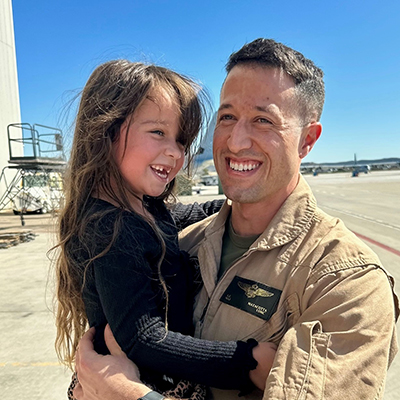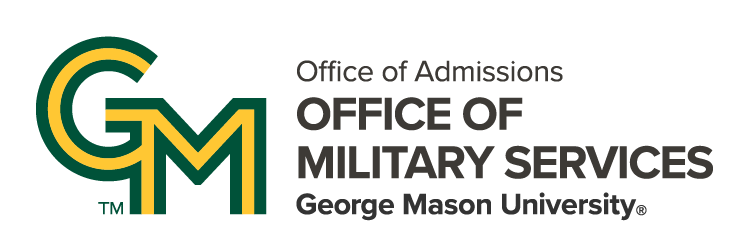Each year since 2018, the Schar School of Policy and Government at George Mason University has welcomed a cohort of United States Marine Corps officers to campus as Master of Public Policy students. The officers chosen for the prestigious Marine Corps Congressional Fellowship program complete their fellowships by working for elected representatives on Capitol Hill. Major Anthony Matacotta is a member of this year’s cohort.

Major Anthony Matacotta is more familiar with the cockpits of KC-130J Super Hercules, a four-engine turboprop military transport aircraft, than he is with navigating the marble halls of Congress. But the Marietta, Georgia, native and Marine Corps aviator is looking forward to gaining “a better appreciation for what Congress does and glean some insight into how legislating is really accomplished,” he said. “What’s that quote from Hamilton? ‘I want to be in the room where it happens.’”
Matacotta was excited to continue his academic education after earning a BS in political science from the United States Naval Academy in 2013.
“The Marine Corps emphasizes the idea of being a lifelong learner through professional military education and personal enrichment and I have always wanted to seek higher education,” he said. “So, the chance to earn a masters degree and represent the Marine Corps in a Congressional office struck me as an incredible opportunity.”
Returning to a college campus after nearly a decade, he said, he found himself in classrooms with students from a vast array of professional experiences and backgrounds.
“The diversity of thought amongst everyone at George Mason fuels energized discourse and innovation,” he said. “I have learned so much from my classmates.”
Matacotta praises all the courses and faculty at George Mason.
“My favorite course so far has been statistics with [Associate Professor] Jessica Terman,” he said. “In a time where information abounds, but good information remains scarce, Dr. Terman’s course gave us the tools to extract truth from the noise.”
Matacotta was drawn to the Schar School’s public policy program as a way to build on his commitment to public service developed during his military career.
“As Marines, we swear an oath to defend the constitution,” he said. “I am interested in public policy because I want to enrich my understanding of what I have sworn to defend. Public policy is how the ideals of that Constitution are applied to address contemporary social, economic, and political issues.”
Once the fellows earn their Schar School MPP degrees and serve their term on Capitol Hill, they return to uniformed duty. After that, they may reenlist or return to civilian life. Whatever the future holds for Matacotta, “I hope to apply the knowledge and insights I gain at George Mason both during and after my military career,” he said.
“I am consistently impressed by the caliber of the students in the Marine cohort,” said Noah Jacobson, an adjunct professor of politics and government who has taught the cohort for the last five years. “They are driven and thoughtful, always eager to learn more. They play a key role as part of an invaluable program.”
“There is a lot of policy that reaches out and touches the military and I hope to use what I learn at George Mason to help translate it to my Marines and the service writ large,” Matacotta said. “After the military, I believe a better understanding of public policy will make me a better-informed citizen, able to effectively participate in government.”
More than 4,700 of George Mason’s more than 40,000 students are military or veteran-connected. The university is designated a Military Friendly TM institution and has been rated as a top college for veterans by U.S. News and World Report. In fall 2024, the university’s incoming freshman transfer cohort was 20% military connected, and the incoming graduate cohort was 19% military connected. See this webpage to learn about the Military, Veterans, and Families Initiative at George Mason.
In This Story
Related News
- January 27, 2026
- January 20, 2026
- January 7, 2026
- November 10, 2025
- October 13, 2025
